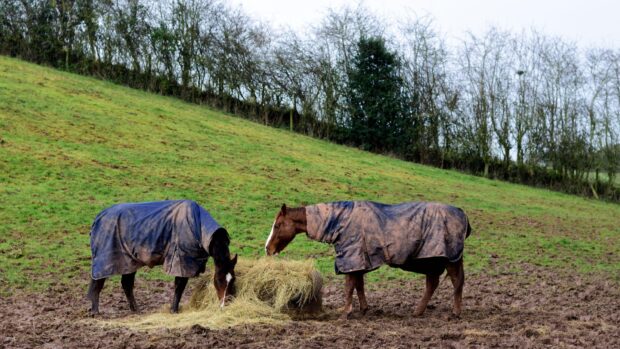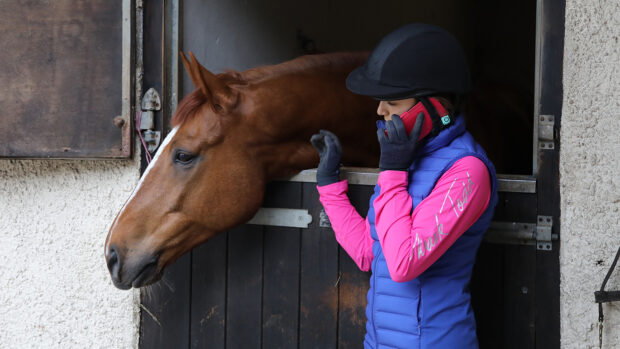Q: My horse regularly suffers from sweet-itch, and my vet and I would like to try homeopathy and herbalism. Are they covered under veterinary fee insurance?
Complementary and alternative medicine (CAM) recommended by a vet is usually covered by standard veterinary fee insurance cover, although many policies impose a fixed monetary limit.
According to vet Tim Couzens, principal of the Holistic Veterinary Medicine Centre in Sussex, at least 50% of his equine cases are insurance referrals.
“In my experience of clients making an insurance claim for equine treatment with CAM, I’ve never witnessed claims being refused,” he explains.
“Homeopathy is based on the principle of ‘like cures like’ and is a form of ‘energy medicine’ – the energy from the original remedy initiates the healing. Herbalism is a system of treatment using medicinal herbs, either in dried form or as tinctures extracted with alcohol. It can also be effective in treating sweet-itch in horses.”
The honorary secretary of The British Association of Homeopathic Veterinary Surgeons, vet Christopher Day, agrees that considering a holistic approach is wise.
“Insurance companies do usually pay for such treatments, if they are performed by a specialist vet.They are generally welcoming of our involvement – they see it as a way of helping the patient and, in the long run, saving money.”
According to David Buckton, associate director at South Essex Insurance Brokers, most equine insurance policies now include CAM treatments, but it is essential to check the policy terms to see exactly what is covered.
“Veterinary fee insurance provides cover for the cost of treatment in respect of disease or injury, carried out by a qualified vet,” he explains. “However, CAM treatments will often require prior agreement with the insurance company. Check the policy wording – some insurers list specific procedures, such as veterinary homeopathy, as being complementary or alternative.
“Meanwhile, other insurers regard complementary treatments as procedures carried out by persons other than a vet, for example physiotherapy or remedial farriery.
“The Veterinary Surgeons Act states that only registered members of the Royal College of Veterinary Surgeons may practise veterinary surgery. However there are exceptions for physiotherapists, osteopaths, chiropractors and farriers.
“Procedures such as homeopathy and acupuncture, however, can only be legally performed on an animal by an appropriately trained vet. We have accepted claims for ‘alternative’ treatments, such as acupuncture and homeopathy, when there was a possibility that such treatment might be beneficial to the horse.
“A further point is that the reader’s horse suffers from sweet-itch regularly. If a horse experiences a condition prior to the owner’s current insurance policy, the treatment may not be covered anyway, as onset of the condition will be ‘pre-existing’ to the insurance policy.”
Further information
- Alternative Veterinary Medicine Centre (tel: 01367 710324) www.bahvs.com
- British Association of Homeopathic Veterinary Surgeons – visit www.bahvs.com to find a local practitioner
- South Essex Insurance Brokers (tel: 01708 850000) www.seib.co.uk
- The Holistic Veterinary Medicine Centre (tel: 01825 840966)
- Book: Homeopathy for Horses by Tim Couzens, published by Kenilworth Press Ltd
Looking for horse insurance? Try Horse & Hound’s insurance comparison service at horseandhound.co.uk/insurance



